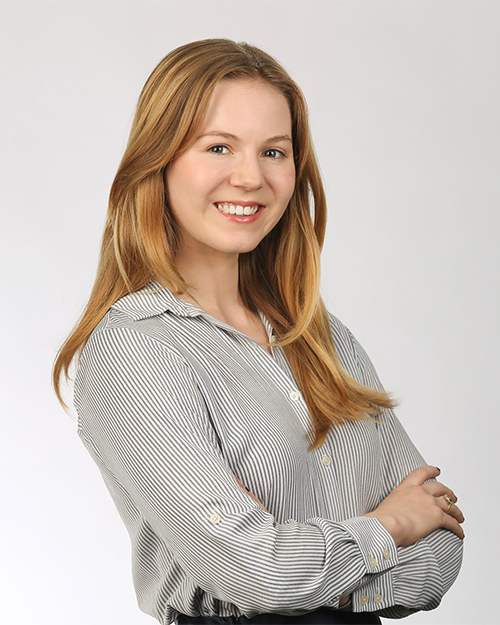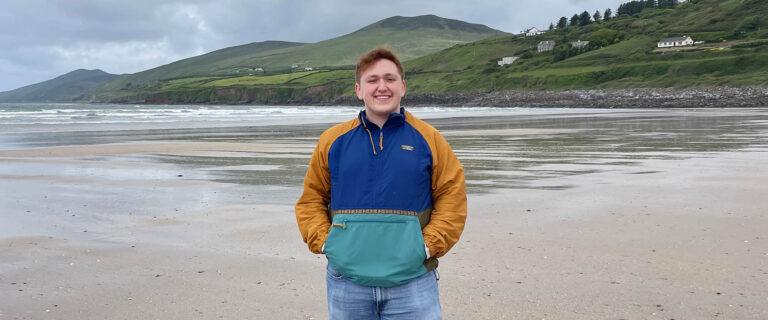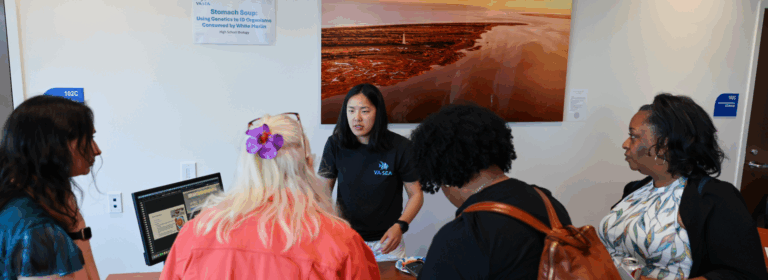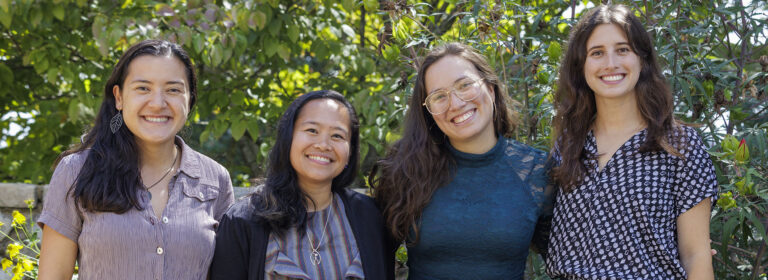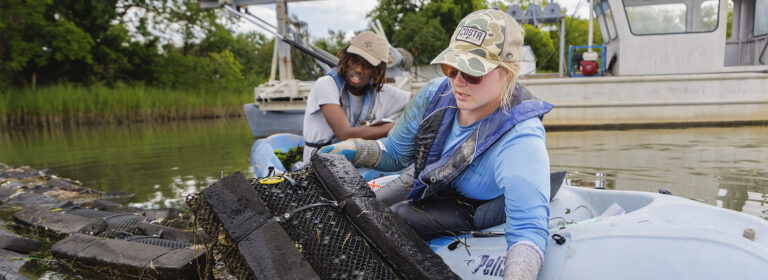Above left to right: Alyssa Bucci, Ella DiPetto, Luke Groff, Matthew LaGanke, Rachel Kelmartin, and Savannah Lynn (Photos provided)
2024 Graduate Fellows Announced
Virginia Sea Grant is pleased to announce the six recipients of the 2024 Graduate Fellowship. These graduate students from across the Commonwealth are addressing important coastal resource issues. They will receive professional development opportunities through the fellowship. Through collaboration with academic and professional mentors, the fellows will share their work with coastal communities.
“Virginia Sea Grant is excited to welcome such a talented cohort of students as Graduate Fellows,” said Lisa Eddy, Competitive Research and Education Coordinator. “The diverse experiences, perspectives, and interests of these fellows will drive innovation in coastal issues critical to Virginia. We look forward to helping them grow professionally during their fellowship and for years to come.”
All projects are subject to funding approval by the National Sea Grant Office and NOAA.
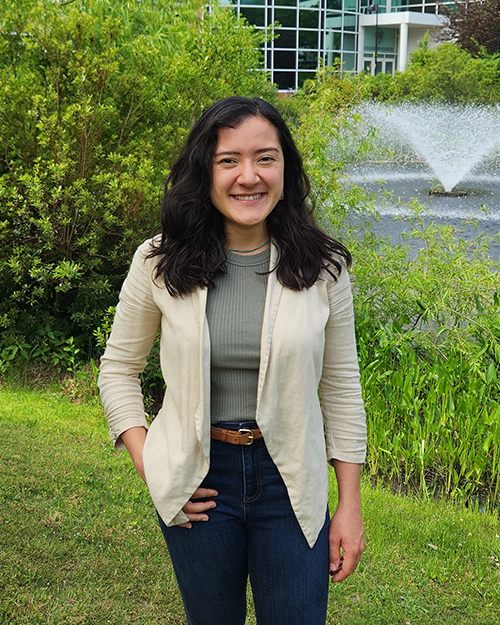
Alyssa Bucci is an Ocean & Earth Sciences master’s student at Old Dominion University. She is interested in anthropogenic impacts on water quality in coastal environments. Her research analyzes the impact of land use on nutrient and bacteria loading to the Chesapeake Bay during tidal flooding. She utilizes citizen science to collect water quality data and promote community involvement. Bucci will be collaborating with local nonprofits and her professional mentor, Dr. KC Filippino from the Hampton Roads Planning District Commission.
Ella DiPetto is a Ph.D. candidate in Ecological Sciences at Old Dominion University working in the Walters Community Ecology Lab. Her research is focused on living shorelines that balance ecological considerations with protection of coastal property. Ella is interested in both the ecological and social considerations of these projects, particularly along developed coastlines and residential property. During her fellowship, she will work with her professional mentor Dr. Wie Yusuf of Old Dominion University, a policy scholar who focuses whole-of-community approaches to coastal resilience, to advance the transfer of living shoreline design and implementation knowledge across the region. DiPetto’s work will connect diverse perspectives, pooling successful practices and lessons learned to advance the effectiveness and resilience of nature-based shoreline protection.
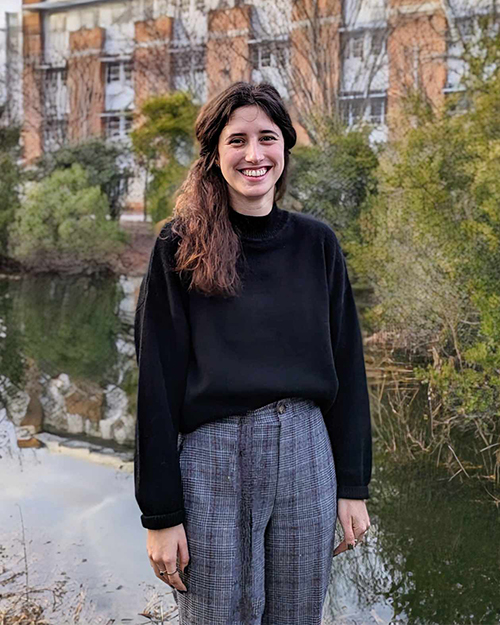
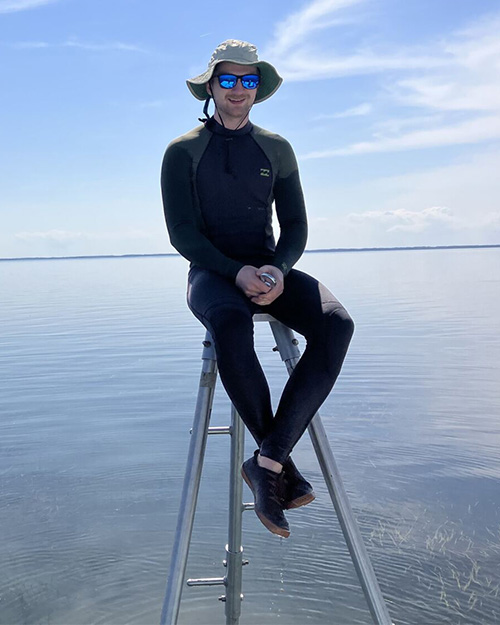
Luke Groff is an Environmental Sciences Ph.D. candidate at the University of Virginia studying ecosystem metabolism and algal carbon storage in seagrass meadows. His goal is to merge his background in education and science access with his work and passion as an ecologist, passing along opportunities to young students. Groff’s project centers around engaging with the community on the Eastern Shore. He plans to teach at the Eastern Shore Community College (ESCC) alongside his professional mentor, ESCC Science Program Chair Dr. Alex Foxworthy, and bring in ESCC students to collaboratively design research projects in the Virginia Coast Reserve.
Matthew LaGanke is a Ph.D. student at the Virginia Institute of Marine Science and a member of the Commercial Shellfish Aquaculture Lab & Team (C-SALT). His research investigates the feasibility of integrating modern management tools into shellfish farming. LaGanke’s work aims to provide farmers with advanced methods for gathering, preserving, and analyzing data on their crop that, in turn, support better decisions related to production. Matt will work with professional mentors Mike Congrove from Oyster Seed Holdings in Virginia, Dr. Gary Fleener from Hog Island Oyster Company in California, and Perry Raso from Matunuck Oyster Farm and Bar in Rhode Island to gain insight into the balance of research & development programs within shellfish aquaculture businesses.”
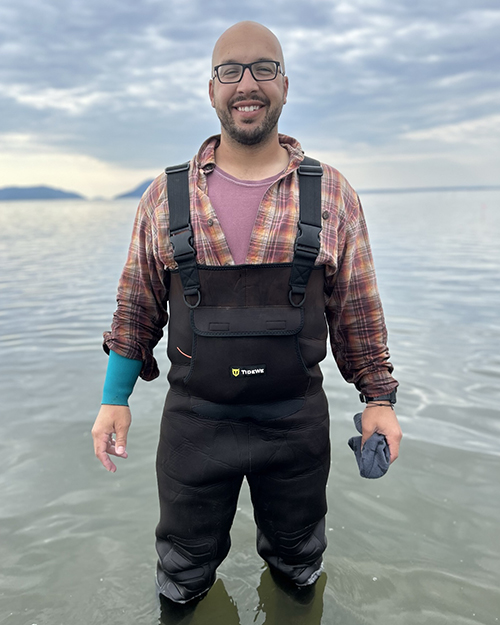
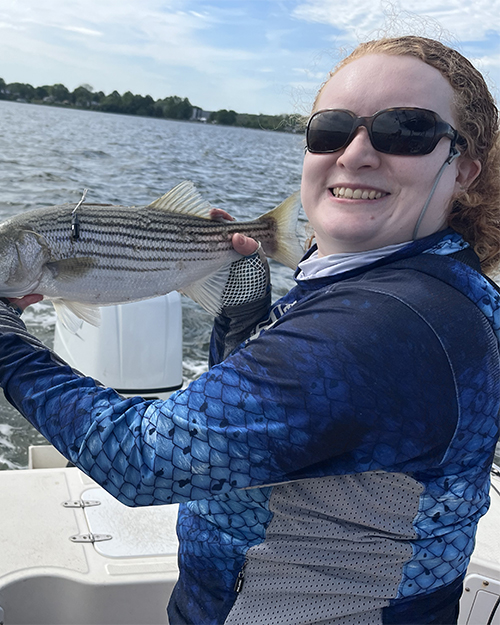
Rachel Kelmartin is a master’s student in T. Reid Nelson’s fisheries ecology lab at George Mason University. She is interested in applied science that will aid in keeping fisheries sustainable so that they may be utilized and enjoyed equally by everyone. Partnering with David H. Secor at the Chesapeake Biological Laboratory and Brendan Runde at The Nature Conservancy, Kelmartin’s project focuses on creating a fluid catch and release mortality estimate for the Atlantic striped bass population with a focus on how water temperature influences mortality, and keeping the fishery sustainable to ensure its use for generations to come. Her mentor, Brendan Runde, will help her promote fish welfare when using acoustic telemetry and enhance her public outreach potential with his plentiful experience and expertise.
Savannah Lynn is a Ph.D. student in civil engineering at the University of Virginia. Through her research, she aims to implement an educational program that integrates high-resolution watershed modeling and deployment of Internet of Things (IoT) devices to empower middle school students in coastal Virginia to actively contribute to sustainable flood management solutions. Savannah and her mentor Venecia Ferrell, at Old Dominion University, will work with the students to collect real-time data on precipitation, water levels, and water quality using IoT sensors, which will be used to improve flood forecasting models and enable evaluation of green infrastructure mitigation strategies. Through hands-on activities and analysis, the students will gain scientific literacy related to flooding, watershed management, and climate change impacts, fostering the next generation of environmental stewards.
